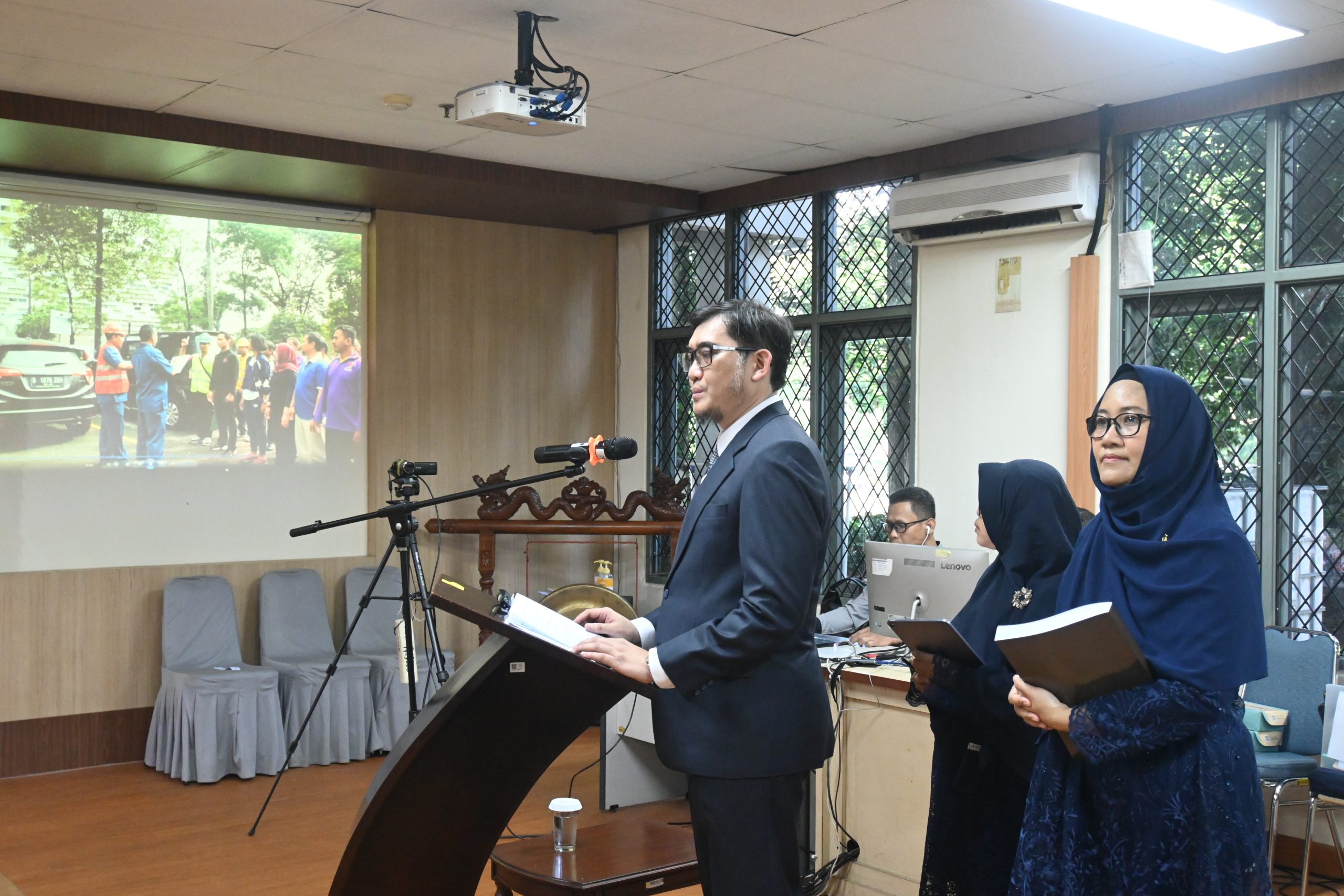On Wednesday, July 3, 2024, the Faculty of Public Health (FPH) Universitas Indonesia (UI) held a public defense for the Doctoral promotion of Tubagus Ferdi. The promovendus successfully defended his dissertation titled “Benefits and Comfort of the BLUI Phototherapy Blanket for Reducing Serum Bilirubin Levels in Physiological Neonatal Jaundice.” This innovative research focuses on the development of a Light Emitting Diode (LED)-based phototherapy blanket, designed as a more affordable and efficient solution for managing neonatal jaundice or physiological jaundice in newborns.
In his dissertation, Tubagus Ferdi explained that approximately 60% of full-term infants experience neonatal jaundice during the first week of life, caused by an increase in bilirubin levels due to the intense breakdown of red blood cells and the immature liver’s inability to effectively conjugate bilirubin. Addressing challenges posed by existing phototherapy devices, this study developed the BLUI LED phototherapy blanket, which utilizes LED technology to reduce serum bilirubin levels in neonates more comfortably and economically. Preliminary clinical trials showed that the blanket was effective in reducing serum bilirubin levels, with an average decrease of 3.11 mg/dL within 24 hours, or 19.02%. In the RCT (Randomized Controlled Trial) study, the average decrease in bilirubin was 1.4 mg/dL within 24 hours, or 9%. This offers an alternative phototherapy method that is more accessible and easier to operate in various healthcare facilities across Indonesia.
In fact, the use of phototherapy through blankets available on the market has proven to have advantages over fluorescent methods, particularly in terms of comfort and maintaining the bond between mother and baby, as well as facilitating direct breastfeeding. However, the currently available phototherapy blankets still face several challenges, including relatively high costs. In response to these limitations, this research focused on developing a simple phototherapy blanket, the LED BLUI (Blue Light Universitas Indonesia).
The BLUI Blanket procedure uses various light sources such as fluorescent lamps, halogen lamps, fiber optics, and Light Emitting Diodes (LEDs) to assist in the breakdown and mobilization of bilirubin in the neonate’s body. Several previous studies have shown that LED lamps are effective in reducing bilirubin levels, shortening treatment duration, reducing hospital costs, and improving the quality of medical services.
The development of the LED phototherapy blanket was conducted from February 2020 to February 2022 and tested in the Product Testing Laboratory at BPFK Jakarta. The development of the BLUI LED Phototherapy Blanket offers a promising alternative to phototherapy devices for reducing high bilirubin levels in neonates. However, device modifications and protocol improvements are necessary to enhance performance and optimize the device to match its potential as demonstrated in laboratory tests.
The BLUI LED Phototherapy Blanket is expected to be developed as an effective alternative phototherapy treatment in healthcare facilities. The advantages of using this blanket include lower production costs, ease of use and transport, light weight, more even radiation, and flexibility in placement closer to the baby. These advantages allow for easier distribution and wider use in Primary Health Care Centers (PUSKESMAS) and hospitals across Indonesia, providing greater benefits to the community.
Based on the results of his dissertation, Tubagus was successfully awarded a Doctorate in Public Health Sciences as the 28th PhD graduate in Public Health Sciences in 2024, the 324th PhD graduate in Public Health Sciences at FPH UI, and the 416th PhD graduate at FPH UI.
The defense was chaired by Prof. Dr. dr. Sabarinah Prasetyo, M.Sc. The promoter was Prof. dr. Asri C. Adisasmita, M.P.H., M.Phil., Ph.D., and the co-promoters were Prof. Dr. dr. Purwantyastuti, M.Sc., Sp.FK., and Dr. dr. Johanes Edy Siswanto, Sp.A(K)., Ph.D. The examining committee included Prof. Dr. Sudarto Ronoatmodjo, S.K.M., MSc.; Prof. Dr. Hadi Pratomo, MPH., Dr.PH.; Dr. dr. Nani Dharmasetiawani, Sp.A(K).; and Prof. Dr. Ir. Raldi Artono Koestoer, DEA. (DFD)

